A selection of plates from Lear's published book can be seen in the following post from 2008: The Parrots.
That book is definitely one of my all-time favourite natural history publications; so I was particularly happy to discover Harvard's intriguing collection of preliminary sketches and practice lithographs by Lear.
To quote myself:
"The balance of critical opinion regards Lear's book on parrots to be the finest ever published on that bird family and among the greatest ornithological works ever produced.Note: Edward Lear was TWENTY YEARS OLD when his Parrot book was published!!
It's not just because such an audacious project was successfully completed by so young a character, or that the subject matter was drawn so sensitively and with great scientific accuracy and naturalistic detail, but because the exceptional quality of Lear's plates - drawn, wherever possible, from living specimens - would significantly influence the work of two contemporary artists, John James Audubon and John Gould, perhaps the greatest ornithological illustrators of all time.
Both Audubon and Gould would employ Lear during the 1830s to assist in their projects and it was only failing eyesight that foreshortened Lear's bird illustrating career."
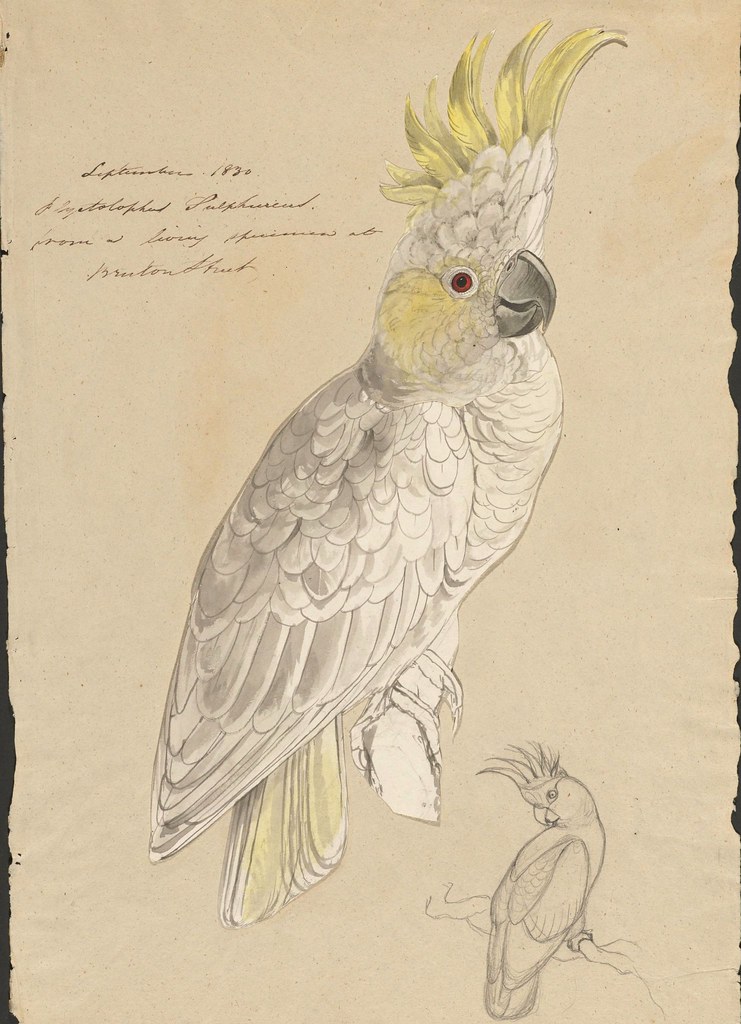
Lesser sulphur-crested cockatoo : ink, graphite and watercolour drawing. 45 x 30.9 cm.
Drawing cut-out and pasted on leaf.
Inscribed upper left:
"September 1830. Plyctolophus Sulphureus. from a living specimen at Bruton Street."
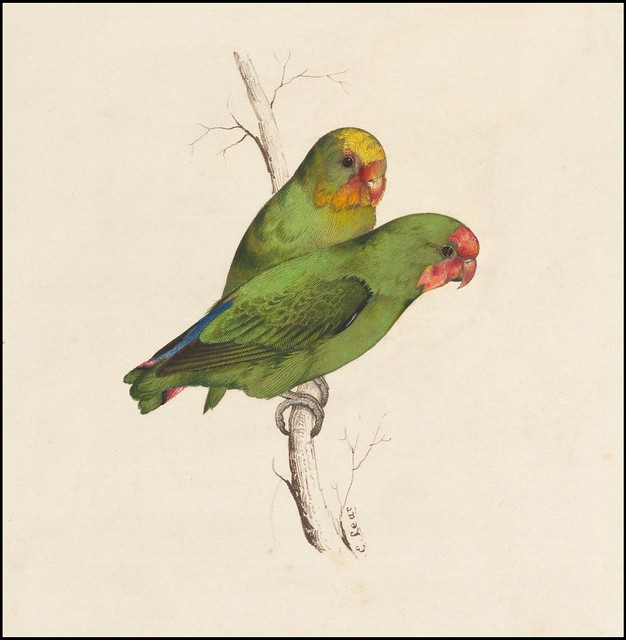
Two small green birds : hand-coloured lithograph
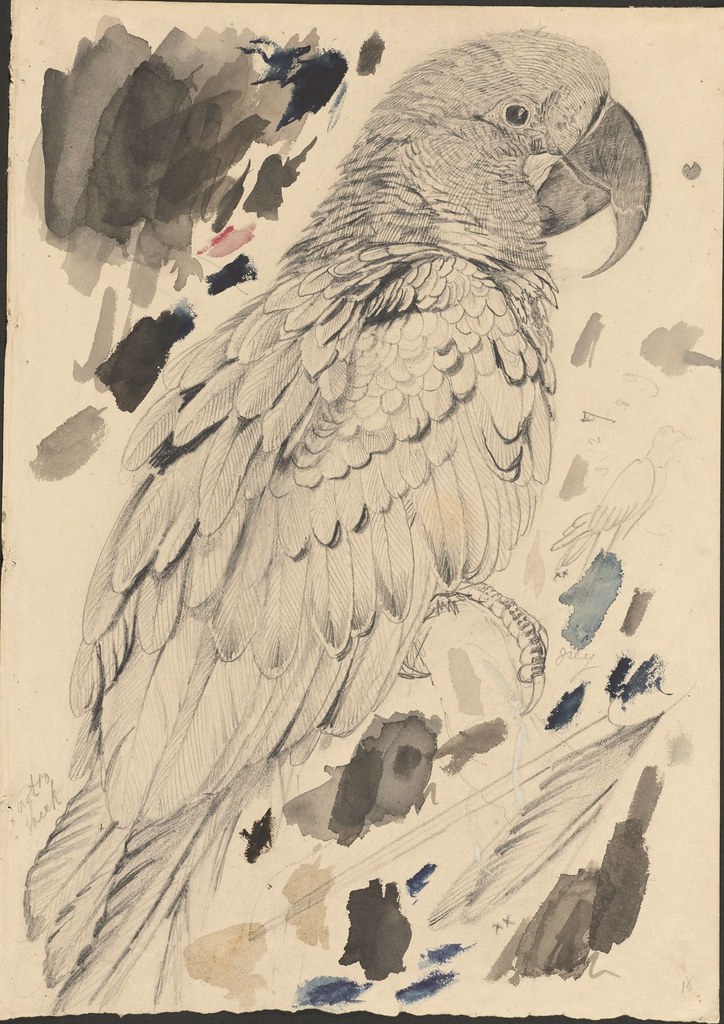
Macaw : graphite and watercolour drawing. 35.4 x 25.7 cm.
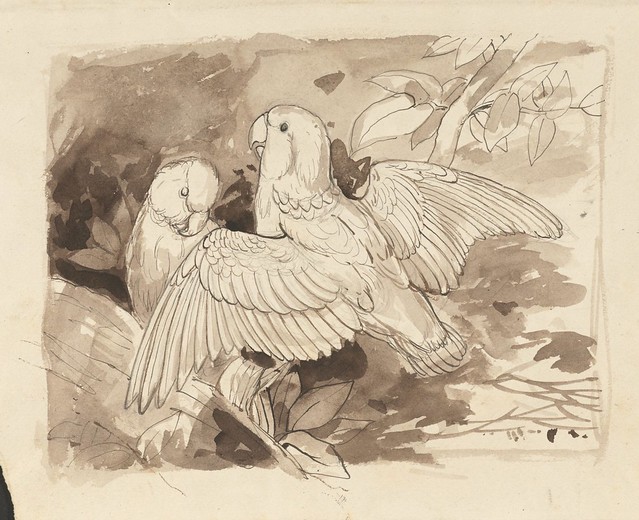
Two small parrots in foliage : ink and watercolour drawing. 37.2 x 55 cm.
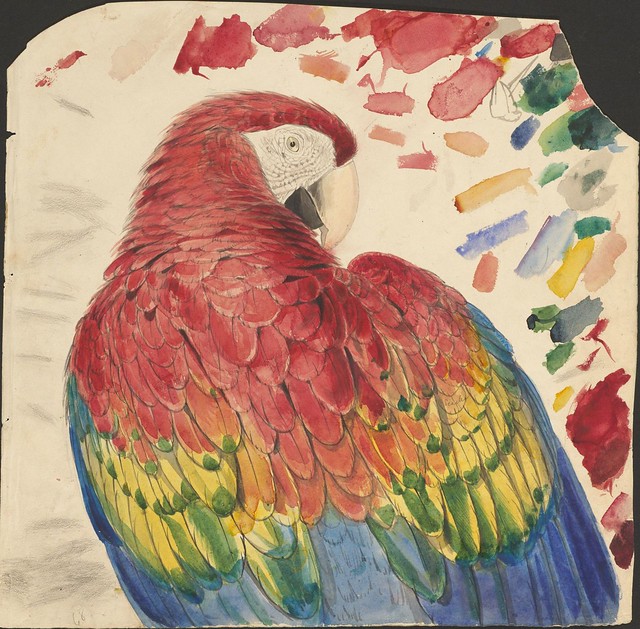
Parrot head [red and yellow macaw] : graphite and watercolour drawing. 36.5 x 37 cm
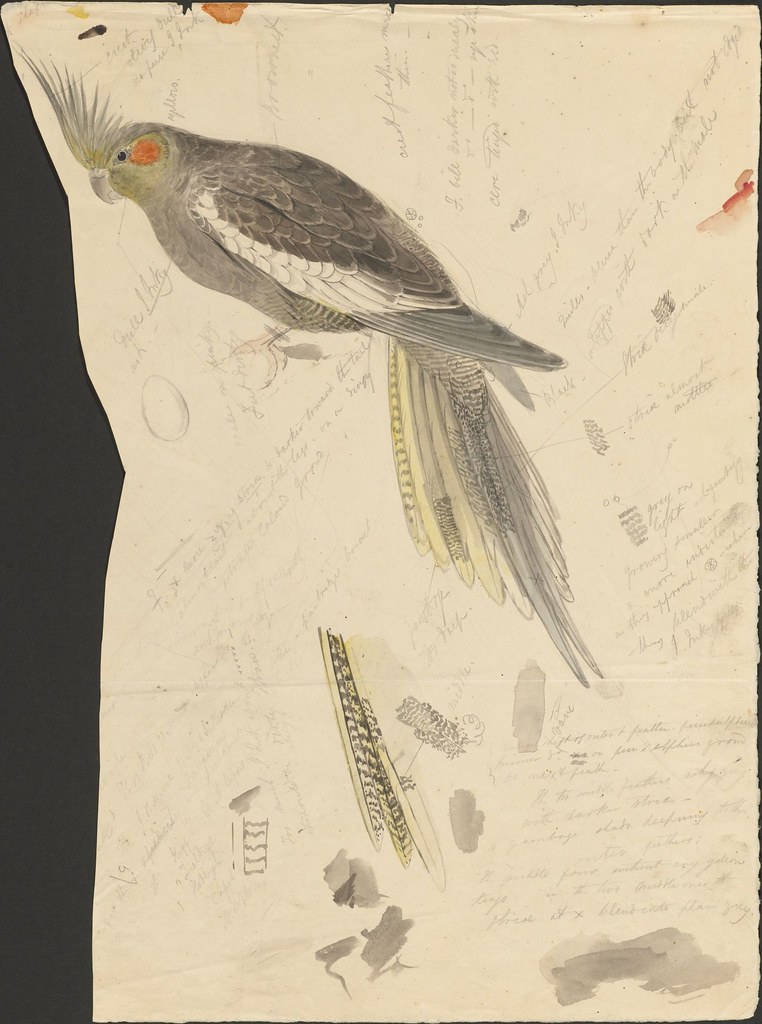
Grey cockatoo : graphite and watercolour drawing. 42.8 x 31.6 cm.
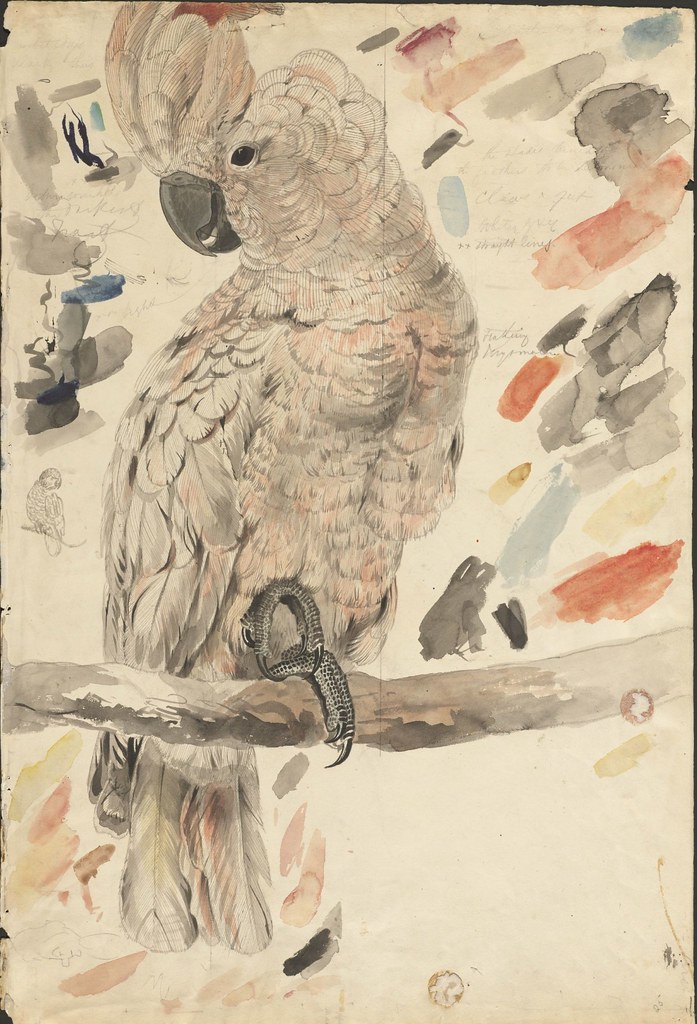
Salmon-crested cockatoo : graphite and watercolour drawing. 54.7 x 36.6 cm.
Drawing for plate 2 in 'Illustrations of the Family of Psittacidae, or Parrots' , 1832.
[Two supplemental pieces of paper [MS Typ 55.9 (22/25a), MS Typ 55.9 (22/25b)] were detached from the sheet for drawing 22 by Lear himself and affixed to drawing 25. One, with colour samples, overlaid the lower right corner of drawing 25; the other was used to extend the feathered crest of the cockatoo beyond the upper edge of the main sheet of drawing 25.]
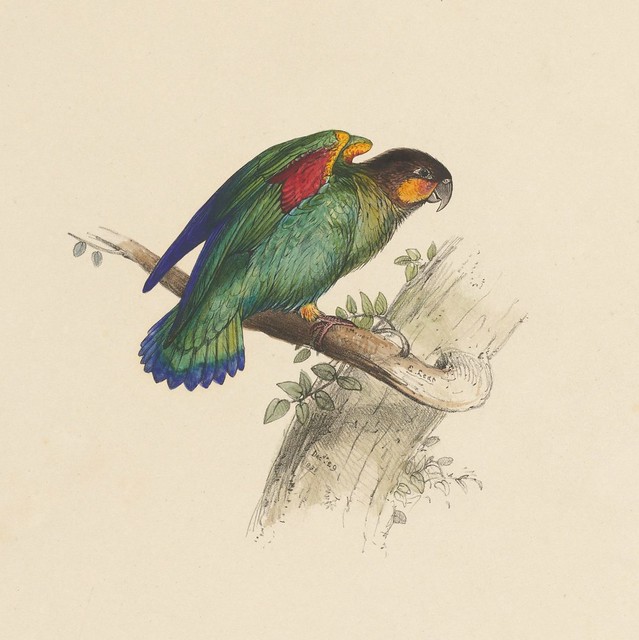
Small parrot : hand-coloured lithograph. drawing. 55.4 x 36.4 cm.
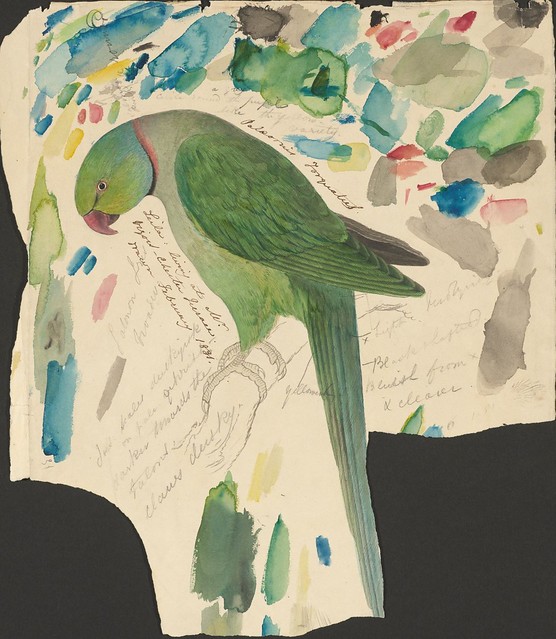
Green parrot : ink, graphite and watercolour drawing. 33.7 x 29.2 cm.
Inscribed:
"Palaeornis Torquatus. Leila: living at Mr. Vigor’s – Chester Terrace. drawn February 1831."
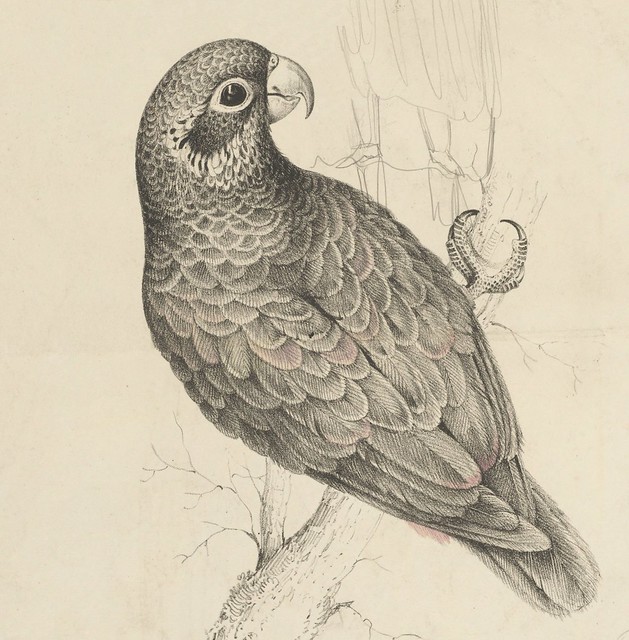
Parrot : graphite and watercolour on lithograph. 54.2 x 36.6 cm.
Inscribed upper left:
"Intended for P. Obscurus, alive at Bruton St. June 1830."
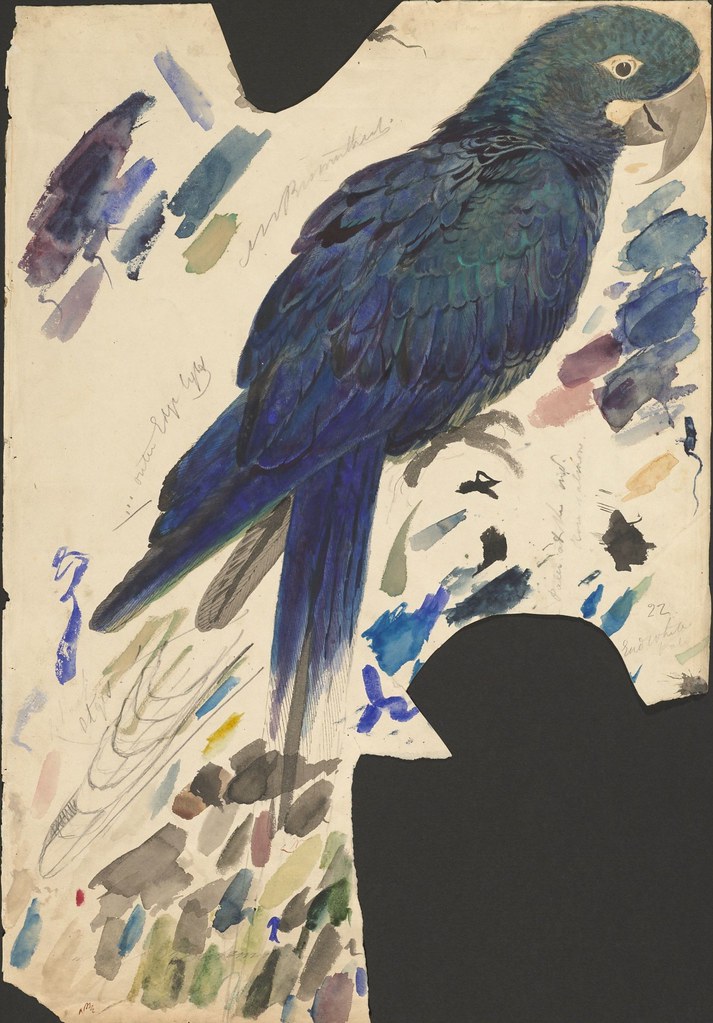
Blue parrot [Lear’s macaw] : graphite and watercolour drawing. 54.3 x 37.3 cm.
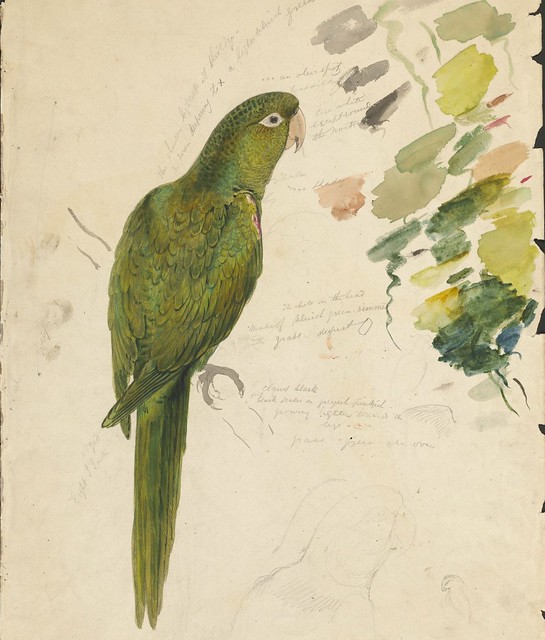
Green parrot : graphite and watercolour drawing. 54.8 x 27 cm.
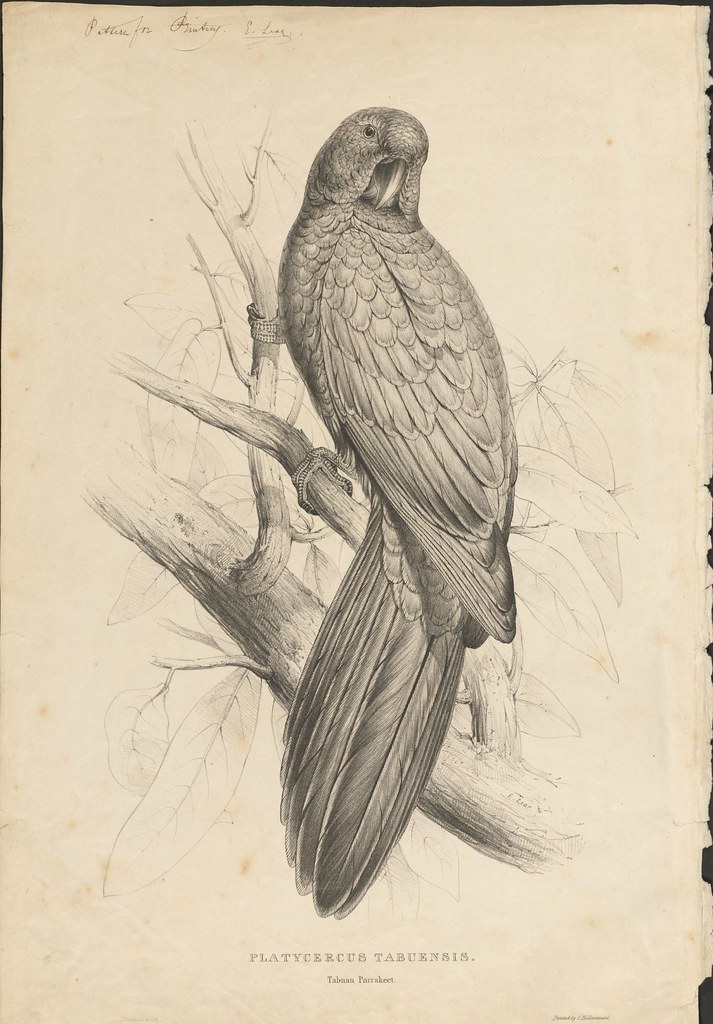
Tabuan parakeet : lithograph. 55.6 x 37 cm.
Inscribed at top of leaf:
"Pattern for Printing. E. Lear."
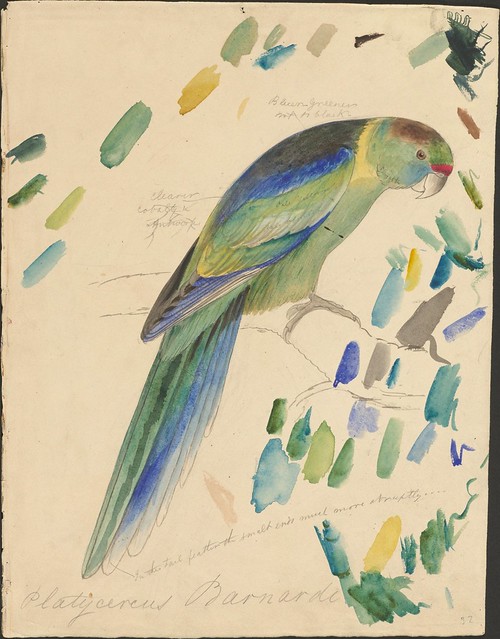
Barnard's parakeet : graphite and watercolour drawing. 37.5 x 28.4 cm.
Drawing for plate 18 in the 'Illustrations of the Family of Psittacidae, or Parrots', 1832.
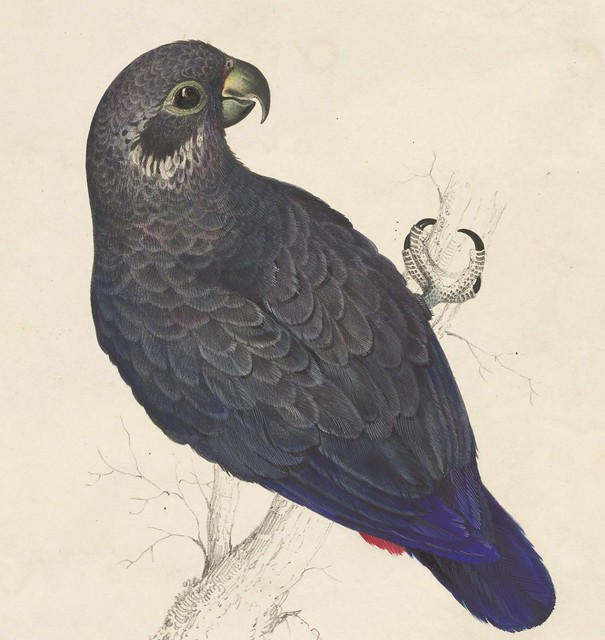
Dark blue parrot : hand-coloured lithograph. 55.5 x 37.2 cm.
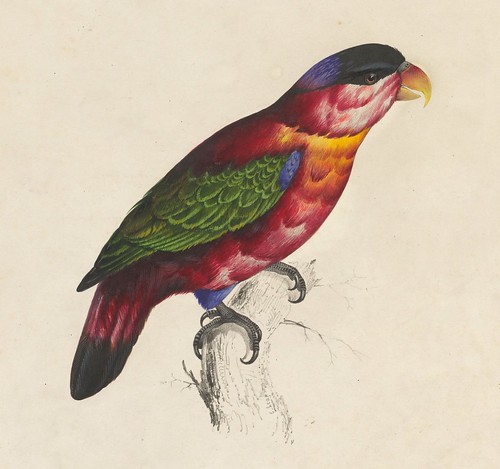
Black-capped lory : hand-coloured lithograph. 55.3 x 37.2 cm.
Inscribed on top portion of leaf:
"drawn from the living Lorius Domicella at Bruton St. my first lithographic failure."
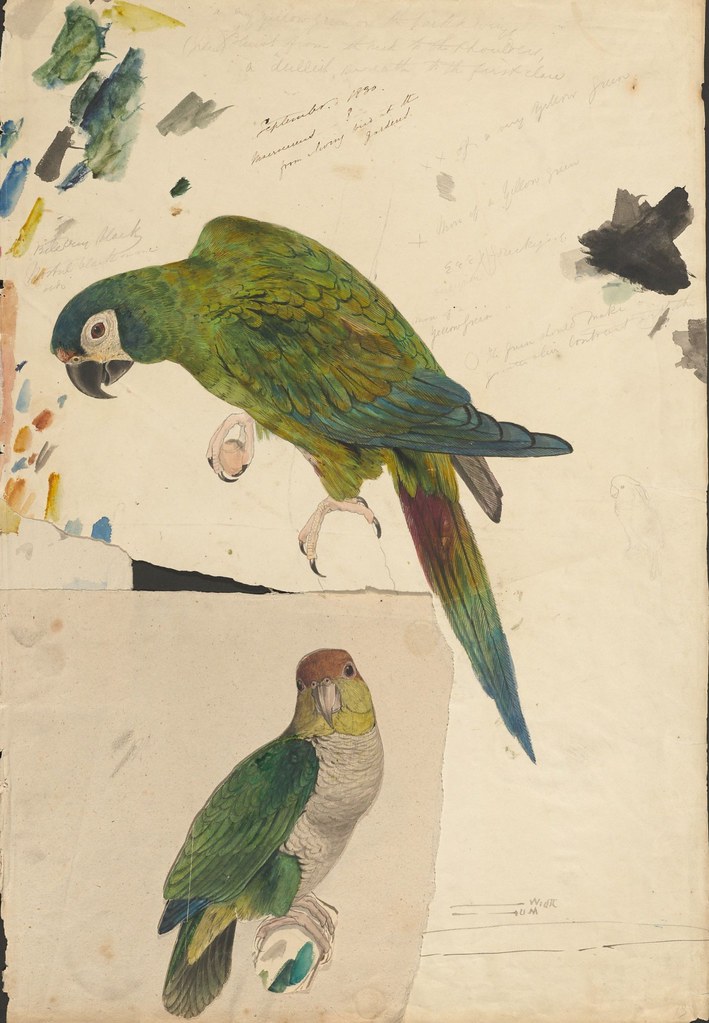
Two parrots : ink, graphite and watercolour drawing. 55.7 x 37 cm.
One drawing cut-out and pasted on composite leaf.
Inscribed upper center:
September. 1830. "Macrocercus - ? – from living bird at the gardens."
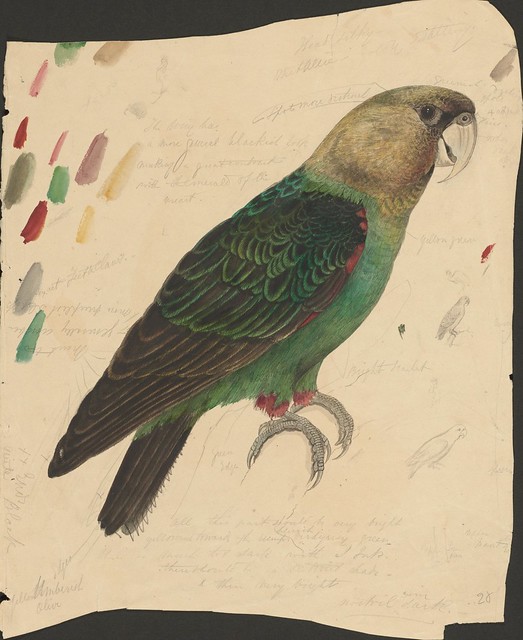
Green and red parrot : ink, graphite and watercolour drawing. 34.3 x 27.4 cm.
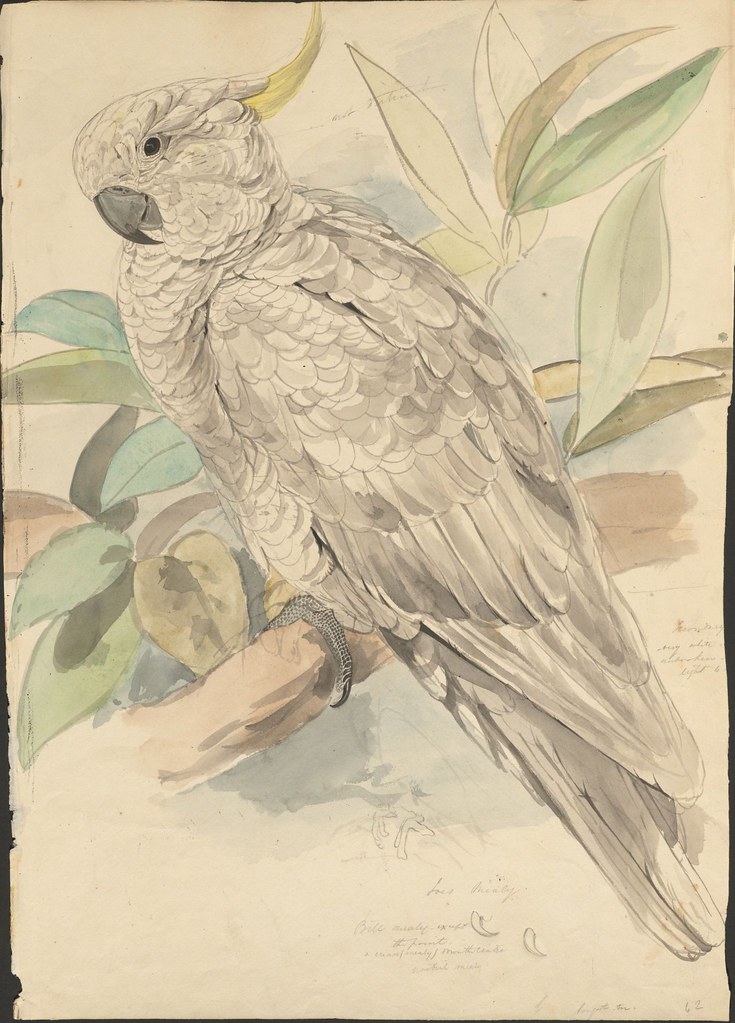
Sulphur-crested cockatoo : graphite and watercolor drawing. 51.2 x 36.2 cm.
Drawing for plate 3 in 'Illustrations of the Family of Psittacidae, or Parrots', 1832.
Lear, Edward, 1812-1888. Edward Lear sketches of parrots relating to 'Illustrations of the Family of Psittacidae, or Parrots' (1832), ca. 1830: Guide. Houghton Library, Harvard College Library.
- Check out the published illustration plates in The Parrots - includes more background and links.
- Edward Lear, The Parrots: The Complete Plates (Taschen).
- via @john_overholt / Houghton Library Blog
- Also see: Turtle Diary.
- Addit. (Nov 2012) A bit tangential, but still: David Attenborough receives his copy of Sharpe's Birds of Paradise from the Folio Society. It's a fabulous 6mins of video, promise!
These are stunningly beautiful. I really love them, thanks for sharing.
ReplyDeleteThe grey one is not a cockatoo, its a cockatiel or weiro (http://en.wikipedia.org/wiki/Cockateil). We had a few of these as pets.
Thank you, BibliOdyssey! Oh, I never knew about these; they are incredible. Edward Lear is one of my big influences, I loved his incredible pen and ink drawings, poems, nonsense and landscapes of India since I was little. His work is amazing.
ReplyDeleteoooh! best parrot post of the year! these are so fresh and really capture the personalities of these amazing creatures
ReplyDeleteoh god, this birds are perfect for me !!!!
ReplyDeletegood posts :D
naomi xxx
Amazingly beautiful! I once owned a grey cockatoo or cockatiel, and Lear has rendered it very accurate. These should be as well known as Audubon's prints.
ReplyDeleteThank you for sharing these - I'm a big fan of Edward Lear and his illustrations - particularly his bird-like people - wonderful to see some sketches.
ReplyDeleteI believe the Harvard collection illustration titles derive from the 1933 book by William B. Osgood Field, 'Edward Lear On My Shelves'.
ReplyDeleteTwo copies of said book have been found on one of my favorite sites for old books: http://www.abebooks.com/servlet/SearchResults?an=William+B.+Osgood+Field&sts=t&tn=Edward+Lear+on+my+shelves&x=82&y=12
ReplyDelete(look at the prices, eek!)
Beautiful, beautiful drawings.
ReplyDeleteI can chime in on one as well. The one listed as "green parrot" with the comment of "Palaeornis Torquatus" is in fact a Rose Ringed Parakeet, probably a Green Indian Ringneck from the look of it. I had one for about 15 years. Wonderful birds.
http://en.wikipedia.org/wiki/Rose-ringed_Parakeet
These are gorgeous!
ReplyDeleteThe "P. obscurus" would nowadays be known as "Pionus fuscus," or Dusky Parrot. First time I've ever come across an illustration of my critter, he's not a common bird.
Oooooh.. I'm reminded of the funniest comment I've seen all year on Metafilter : Birds are the Best.
ReplyDeleteI'd found all the Lear parrots that I could find online a couple of years ago--But didn't know about these. They're splendid.
ReplyDeleteWhat a glorious treasure this site is.
So gorgeous!! It's amazing how well he was able to suggest full feathers with few lines. The colors are to die for... Very inspiring, and a wonderful find.
ReplyDeleteThese drawings are very soft and delicate. Elegant and stunning work.
ReplyDelete